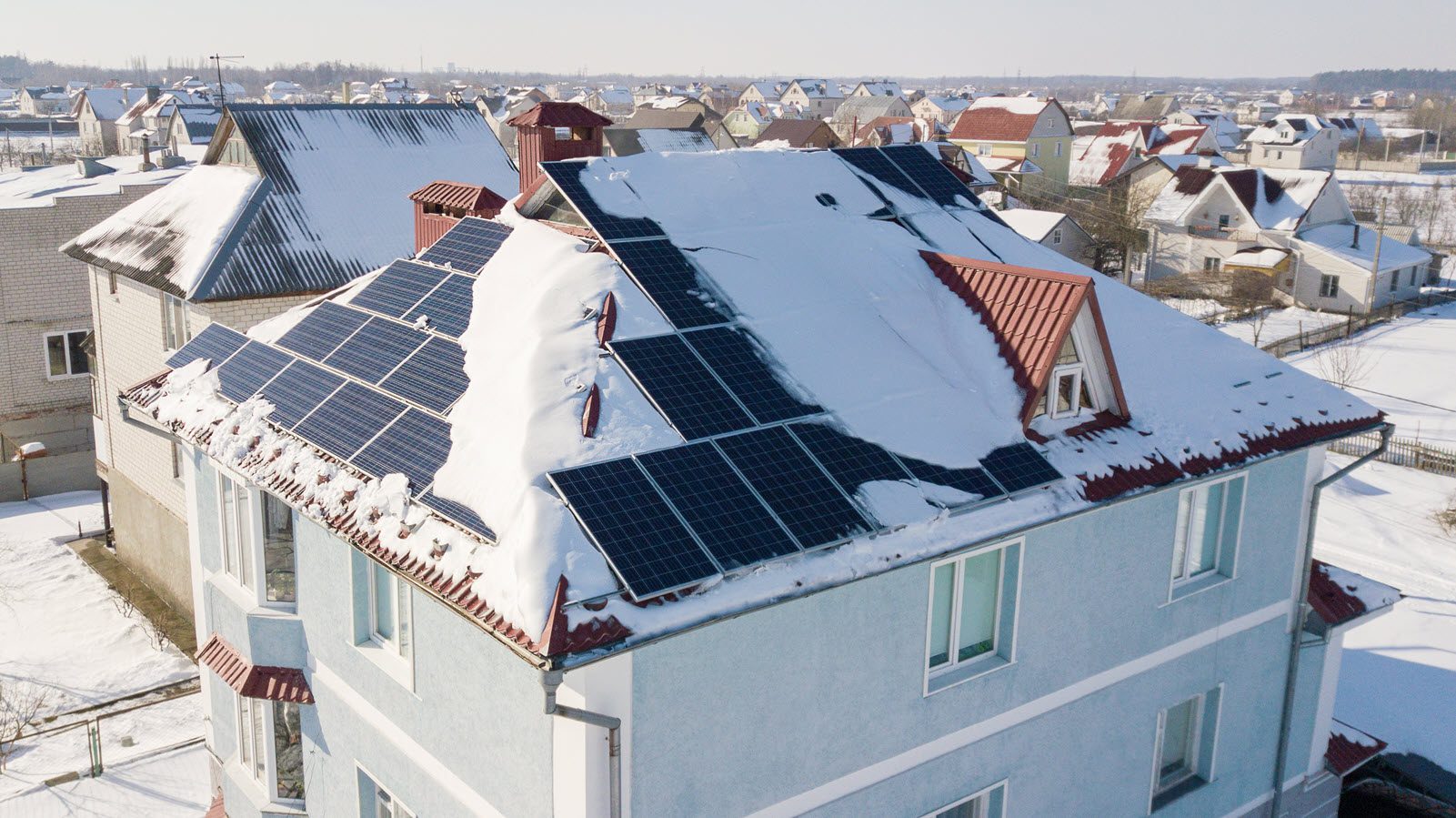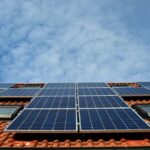Do solar panels work in winter?
That’s one of the more common questions people have when considering solar panels for their home. After getting information about things like how much panels cost and how many you need, people want to know how much electricity they can expect their panels to produce.
Part of that depends on the type of panels you get and the efficiency of the panels. And part of it depends on the environment where the panels will be placed.
That includes the physical location of your roof and how much sunlight vs shade it gets. It also includes the environmental conditions of where your house is located.
A lot of people who live in an area where it gets cold and snowy in the wintertime want to know if their panels will work all year round. Below you’ll find all you need to know about solar panels and the winter.
Do Solar Panels Work In Winter?
The short answer is yes. Solar panels can and do still work even when the temperature drops and winter hits. In fact, not only do they function during the winter season, but they will also function even if you live in an area where the weather is chilly year round.
Contrary to some beliefs, solar panels are powered by light from the sun, not heat. Whether the temperature is warm or cold will have little impact on how your solar panels work.
Since, in most places, there is still daylight during the winter your solar panels will continue to produce electricity.
The only exception to this is if you live in a place like Barrow, Alaska that gets 24 hours of darkness for a few months each winter. In a case like this where the sun goes MIA for a few months, then your solar panels cannot produce electricity.
But that is the exception rather than the rule. So, in most places, solar panels will work just fine all winter long. However, this doesn’t mean that winter has no impact on solar panels. Let’s look at solar panel efficiency in the winter.
How Winter Weather Can Affect Solar Panels
During the winter season, solar panels cannot gather as much energy as they can during sunny seasons. This is because there are fewer hours of daylight than in the other seasons.
But the difference in how much energy your solar panel can produce during the winter season compared to summer is not that significant. Part of the reason is that colder temperatures can actually help improve the performance of solar cells production.
Snow and Solar Panels
But how will snow affect the solar panels? Well, for the most part, there is nothing to worry about here. This is because most solar panels are durable enough to endure extreme weather conditions such as snowfall.
Most premium-grade solar panels are put through simulations of different weather and seasons to prove how durable they are. It also means that they are operational even during other weather conditions.
This means snow is not a big problem that can affect the solar panels themselves.
In fact, in some cases, snow can actually help your solar panels. Snow can reflect light which is why a snowy environment can help your solar panel generate more electricity.
But in some cases, much like a tree shading your solar panel, snow can also shade your solar panels.
Here, again, however, there is not much to worry about regarding snow accumulating on the solar panel. If the snow is fairly light, the wind usually removes it from the solar panels so they won’t be covered for long.
As for heavy snow, that’s a different story. If your panels are buried under inches or feet of snow, they will not produce much, if any, electricity.
You should be a bit cautious in removing deep snow from your panels. You don’t want to risk damaging your panels. And you don’t want the snow to come toppling down off the roof/panels onto you! If you want to get the snow off your panels, you should consider getting the help of a professional.
Bottom Line
In conclusion, yes, solar panels do work during the winter. However, the amount of energy they produce will be affected by shorter days and snow conditions.








